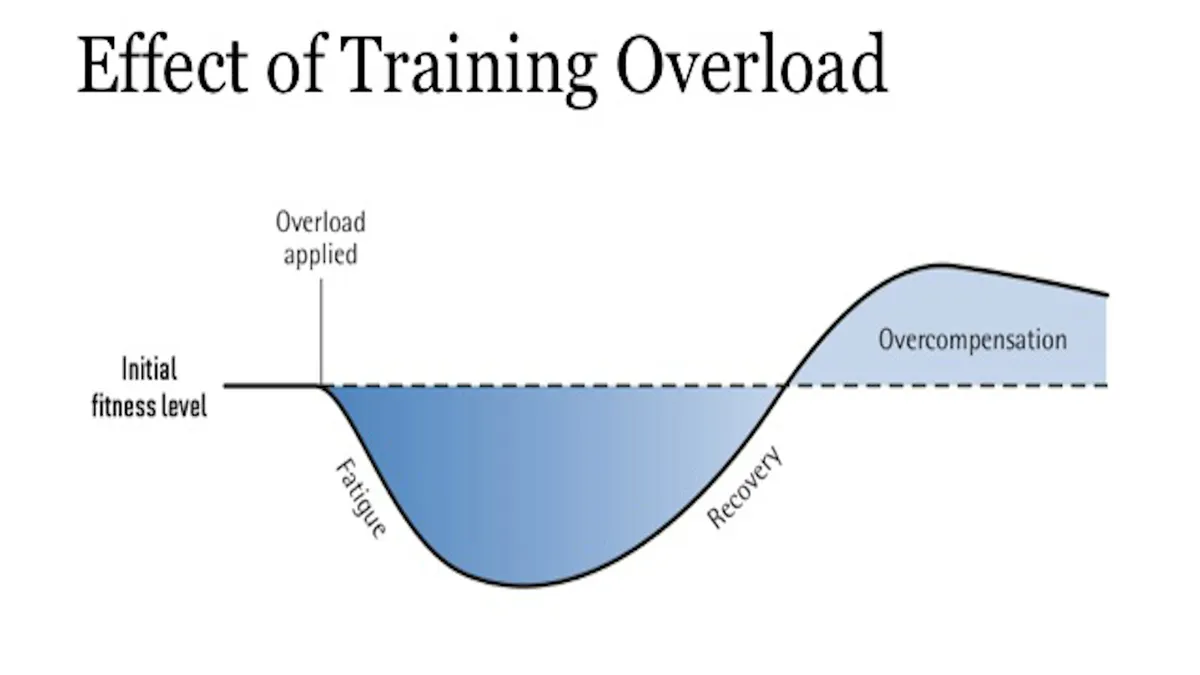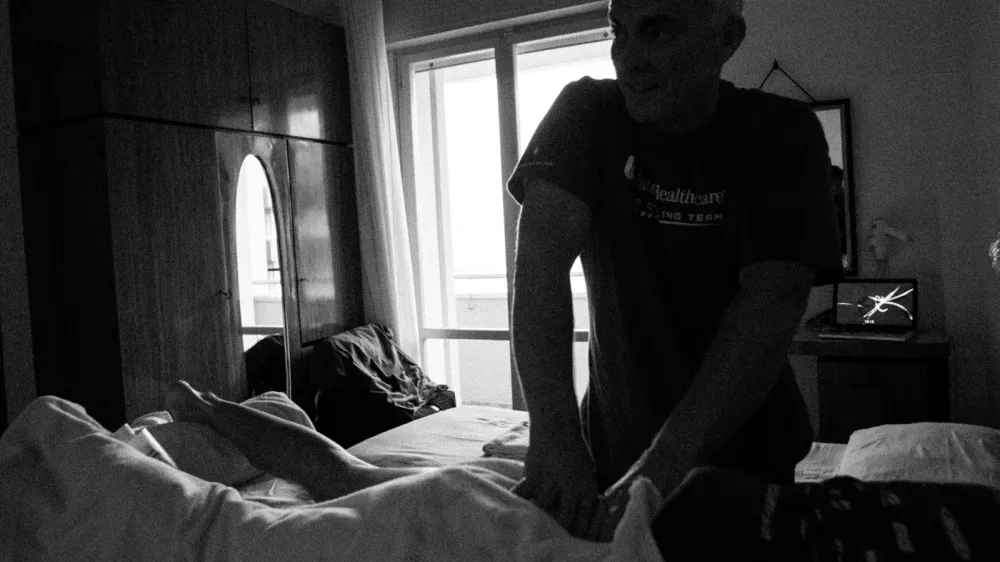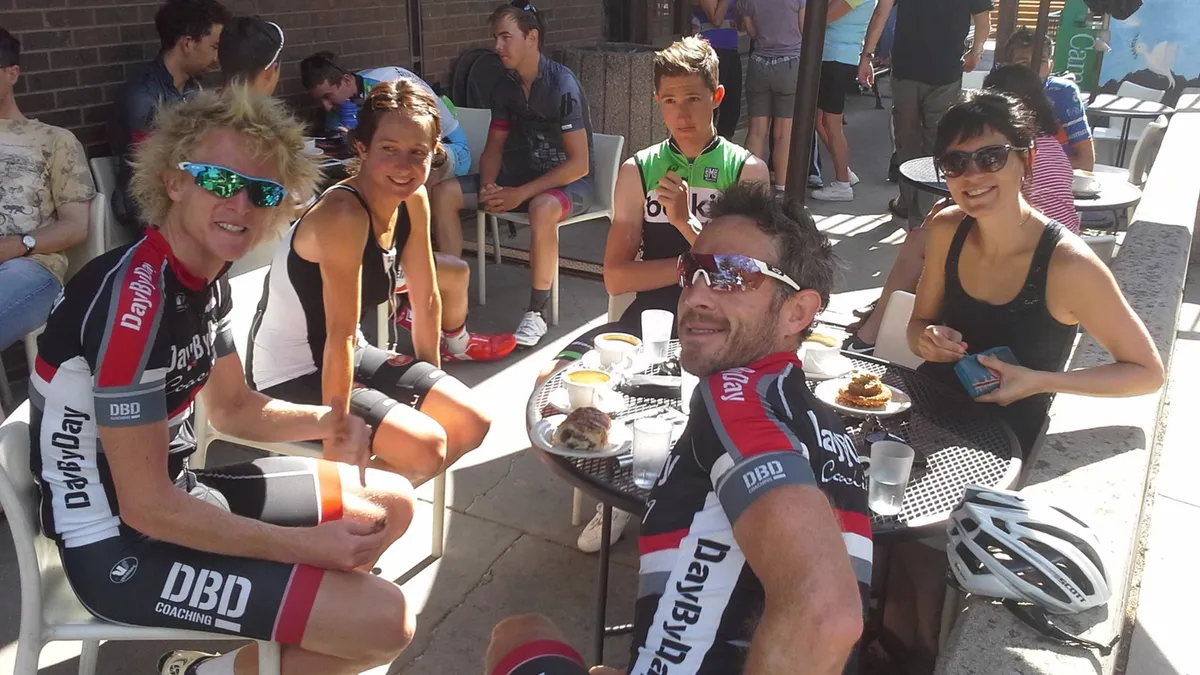To get faster on the bike, you must include adequate recovery. The training process is one that can be summed up as simply as: exercising breaks down the body (overreaching), which after, during the recovery phase, the body rebuilds and repairs itself to be stronger and better than before (overcompensation). Looking at this, you can see how important a component recovery is to you striving for peak performance.

"This diagram shows the response to training load, how it affects fitness through fatigue, through which recovery then elicits a positive reaction resulting in a greater level of fitness" – Courtesy of Joe Friel, Figure 3.2, The Cyclist's Training Bible
We all have a tendency to know how to train hard, since the quest to become a better athlete is an addictive force, resulting in wanting to train more, push more, and be more. The thing to keep in mind though, is that the harder we train, the harder we need to rest. One of the things that the pros are best at, is nailing that recovery and being ready to go again, full gas, the very next day.
Exercising and recovery are like yin and yang - two opposite forces but where one can't live without the other. The more we take, the more we must give back. There are no ways around that. But I will share with you some short cuts to maximize your quality of recovery, reducing the time that you need between hard training sessions and getting you back out on the road killing the Strava records sooner, and improving your rate of progression.
Don't forget to check out more of our Training Day by Day features.
SLEEP
This is one of the most crucial components of recovery. It is during sleep that your body undertakes most of the repair work, including a growth hormone release eliciting muscle growth and regeneration amongst many other important factors. There is no magic number for how much sleep you personally need, so listen to your body and observe how long you sleep when you give yourself some days with no alarm clock and a dark room, so that your body awakes when it's ready. 7-9 hours comes as a standard recommendation but, remember, many world class athletes sleep up to 12 hours a night such as Roger Federer.
NUTRITION & HYDRATION
Many pros are food connoisseurs because they understand that eating well is an essential part of the racing life. Nutrient timing (quality eating around training times), nutrient content and hydration are a big part of the job. Aim to lead into the session fueled and hydrated, maintaining this as well as you can during the ride, but most importantly, look to refuel within 30-45 minutes of your training session. Look to always eat a balanced diet consisting of as many natural unprocessed foods as possible. With hydration, sip fluids constantly throughout the day and utilize a low sugar electrolyte drink to maximize fluid absorption.
LIMIT STRESS
Straight after the race, the riders will resort to their team bus or hotel, put their feet up, eat and drink and start the de-stress process with some quiet time. Training and racing can place a lot of stress on the body, and do not forget that the stressors of every day life also have a significant impact and need to be factored in. Consider a nap, read a book or meditate if you have the time after your session, and before bed, stay off of the computer (ed: unless it’s BikeRadar) so that you can calm your mind! Your head needs recovery too!
INCLUDE STRETCHING, MASSAGE AND OTHER BODY WORK
After many years of working with some amazing body therapists coming from different modalities, I definitely appreciate a healthy, well-functioning body. At minimum, include some stretching in your post exercise routine and if you can swing it, consider integrating massage, acupuncture, chiropractic, physiotherapy or any other type of body work that promotes body restoration and recovery.
ACTIVE RECOVERY
Many research studies have shown that active recovery actually has greater benefits than passive recovery. Instead of having a day completely off the bike after some hard sessions or a race, simply ride very easy for around one hour spinning the cranks with a light gear. This increases blood circulation, the removal of toxins in the body and promotes healing and relaxation. I also think this is a great opportunity to have a good conversation with your buddies over a coffee! A light-hearted day is good for the body and soul.
Just last week, Ben Day announced his retirement as an international professional cyclist, racing his last race of a 13-year career at the USA Pro Challenge. Luckily for all of us, Ben will now focus on his coaching business, imparting his knowledge and experience gained over the years to the athletes at DaybyDay Coaching.
Ben day retires from pro cycling
Ben Day speaks of his retirement
In future articles, Ben Day and Chris Baldwin will continue to share methods for improving your cycling, whether mental, physical or just technique related. Do you have any methods for helping your recovery? Share them with the guys on Twitter – their handle is @daybydaycoachin.
Ben Day started DaybyDay Coaching to share his experience as a 13-year international professional cyclist with endurance athletes of all levels. He's a recently retired professional with the UnitedHealthcare Pro Cycling team and coach to many professional athletes throughout the world, providing insight and coaching services that balance science and real-life experience to optimize performance.

